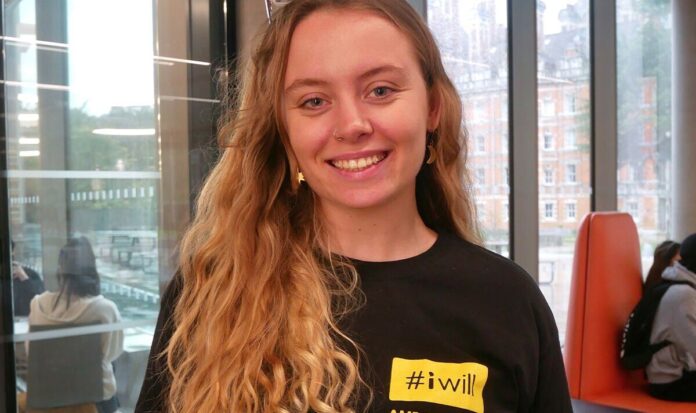‘Hardest period of my life’: Gen Z hit hardest by cost of living crisis, hidden data shows (Image: Molly) Young people under the age of 25 are consistently scoring higher on poverty indicators than other age groups, with one in five now living in poverty, research shows. A new analysis of the cost of living crisis by the Open Data Institute (ODI) shows up to 76 percent of low-income 18 to 24-year-olds are going without essentials and nearly half are in arrears on energy or utility bills. One in five (20 percent) of all 16 to 24-year-olds in the UK now lives in poverty, defined as a household income less than 60 percent of the median income. Additionally, in England and Wales, nearly half (47 percent) of all 18 to 24-year-olds had to borrow money from friends or family in the past year. Under-25s comprise seven percent of rough sleepers in England – with a further 129,000 either homeless or at risk of becoming homeless. However, the ODI says poor data collection methods may mean these figures are significantly underestimated. Under-25s comprise seven percent of rough sleepers in England (Image: Getty) Dr Tom Kerridge, policy and research manager at youth homelessness charity Centrepoint, said: ‘There is a disconnect between official Government data on youth homelessness and the reality we face. Government data on youth homelessness only represents those who are owed a prevention or relief duty after being assessed, but we know from our own research that around one-third presenting as homeless or at risk don’t even reach this point. ‘This could mean that thousands are missed, which can skew crucial support and funding away from where it’s needed most. We need the Government to standardise the way data is collected and reported across local Government if we are ever to end youth homelessness.” The Salvation Army’s Lieutenant Colonel Dean Pallant added: ‘This report shows how important it is to understand the depth of the problem people face today. Clear data is key to getting help to where it is needed most.’ Sharing her own story, Molly, 23, described the winter of 2022 as ‘one of the hardest periods’ of her life when she was left grappling with soaring costs in a student household and often had to endure cold showers and no heating. Juggling full-time studies with a deepening mental health crisis was an immense challenge for Molly (Image: Getty) Molly told Express.co.uk: ‘I grew up in a low-income household. This was my norm, and I knew little else. At the age of 18, my finances became even more challenging when circumstances led me to become independent and estranged from my family, which thrust the responsibility of financial stability squarely onto my shoulders. ‘Juggling full-time studies with a deepening mental health crisis was an immense challenge. The weight of financial burdens felt even more overwhelming.’ For Molly, the winter of 2022 brought a new level of hardship. She said: ‘Existing mental health struggles and personal barriers were exacerbated by the escalating cost of living crisis, sending my anxiety levels skyrocketing. I found myself compulsively checking my bank account, fearing the toll it would take on my already stretched budget.’ Surrounded by fellow students contending with similar challenges, Molly noted that they all shared a mutual understanding of their hardships. Yet, she said: ‘This collective experience also amplified the sense of panic, as we grappled with the uncertainty of where to turn for help. Truthfully, the winter of 2022 stands out as one of the hardest periods of my life due to these circumstances. ‘In our student household, we went to great lengths to save money, even enduring days without heating and dealing with frozen pipes that frequently led to cold showers. Looking back, I realise I prioritised finances over my own health. ‘It’s clear to me now that no young person or household should ever have to face such a choice. It’s a basic right for every young person to feel warm and comfortable in their own home.’ During this difficult time, Molly was supported by UK Youth. Their dedicated youth worker became her ‘lifeline’, offering assistance in managing her ‘mental health crisis’ and alleviating concerns throughout the winter. She said: ‘Before connecting with UK Youth, I had limited access to mental health resources, which profoundly impacted my daily life, heightening my sense of chronic loneliness and making me feel isolated in my struggles. ‘That is why I wholeheartedly believe in the value of youth work. The youth worker not only played a crucial role in saving my life by listening to me and helping me to feel less alone but also provided invaluable guidance during the toughest moments of last year’s winter. ‘Their support was instrumental in helping me navigate through challenging circumstances. Because of them, I now face this year’s winter with a sense of hope.’ Resham Kotecha, head of policy at the ODI, said the report shows how vital data is to understanding the impact of the cost of living crisis on people across the UK. Mr Kotecha said: ‘At the ODI, we strongly believe in the power of data to benefit people in their daily lives, and this is another clear example of how improving data infrastructure can help and why we urgently need to fill these data gaps. ‘Our report shows the multiple issues experienced by households across the UK. Data collection following an open data standard would allow more effective support to be delivered to those most at risk and prevent data gaps that mean people don’t appear in the official statistics. Effective support targeting could also produce efficiency savings for the UK taxpayer.’
5 September, Thursday, 2024


